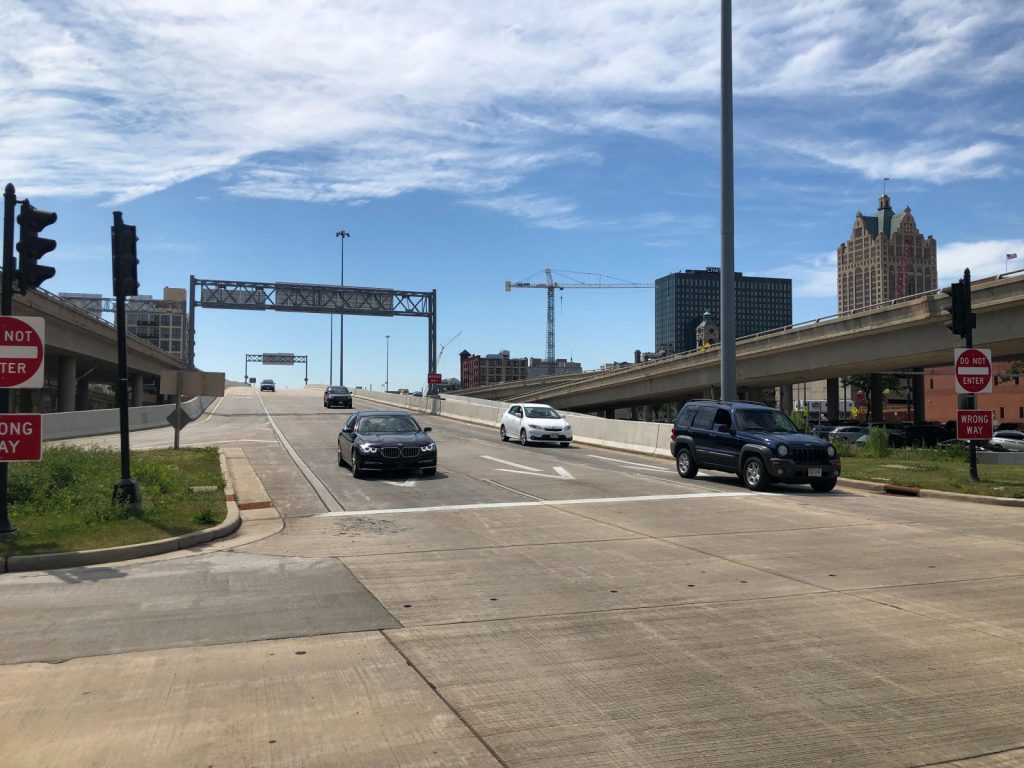Milwaukee Commute Time Ranks Low
Lower than 102 cities in the nation. And hasn’t increased much since 2008.
One of Milwaukee’s selling points has always been the lack of congestion, it’s a big city with a small-town feeling. Two new studies on commuting suggest that hasn’t changed.
Wallet Hub recently took a look at 182 of the biggest cities and ranked them for the length of commute time in 2019. The list includes the 150 biggest U.S. cities, plus at least two of the most populated cities in each state. The result: Milwaukee ranked 103rd, with a lower commute time than 102 cities in the country. Considering Milwaukee is America’s 31st largest city and 39th largest metropolitan area in population, it’s remarkable how low the commute time is.
At the top was New York City with a commute time of 40.8 minutes or nearly 82 minutes round trip. That’s ugly. Chicago ranked fifth, with a commute time of 34.6 minutes.
But Milwaukee ranked far below this, with an average commute time of 22.4 minutes. Still kind of ugly, when you consider spending nearly 45 minutes per day driving on the concrete hell of I-94 or I-43.
Another recent ranking, done by the real estate website Commercial Cafe, took a more long-term look at how commuting times changed from 2008 to 2017 and once again Milwaukee ranked low. By far the biggest increases were in the high tech hotbeds of San Jose CA (up 48 percent in commuting time) and San Francisco (up 39 percent).
The biggest decline in commuting time was in Detroit (down by 8.7 percent) and Memphis (down 3.5 percent). They were among just four cities ranked that saw a decline in commuting time. Milwaukee actually ranked fifth on the list as it only had a 0.9 percent increase in round-trip commuting time, seeing it rise from 44.2 minutes in 2008 to 44.4 minutes in 2017.
Milwaukeeans, the report found, spend just 8 days of their year commuting, about the same as in Tucson, Arizona or Columbus, Ohio. Whereas commuters in New York spend more than 15 days per year on the road, while Chicagoans spend nearly 13 days per year.
Interestingly, Portland Oregon, a city that has embraced mass transit, was one of the leaders in increased commuting time over that period, seeing it rise by 20 percent to an average 54-minute round trip during that period. But Portland also has a booming economy, which tends to increase population and workers, and is probably the main factor explaining changes in commuting time.
Indeed, the cities who topped the list for a commuting time decline, Detroit and Memphis, haven’t been doing that well, whereas those seeing the biggest increase, San Jose, San Francisco and Seattle, are booming.
Milwaukee’s commuting time, meanwhile, has been flat, reflecting a metro area with a economy that has seen neither a boom nor a bust in recent years.
If you think stories like this are important, become a member of Urban Milwaukee and help support real independent journalism. Plus you get some cool added benefits, all detailed here.
Back in the News
-
Justice Ziegler Misquotes US Supreme Court Decision
 Dec 2nd, 2025 by Bruce Murphy
Dec 2nd, 2025 by Bruce Murphy
-
Will West Milwaukee Do Development Near Brewers Stadium?
 Dec 1st, 2025 by Bruce Murphy
Dec 1st, 2025 by Bruce Murphy
-
Key Streetcar Opponent Opposes Effort to Shut It Down
 Nov 10th, 2025 by Bruce Murphy
Nov 10th, 2025 by Bruce Murphy
Transportation
-
Congestion Pricing Cuts Air Pollution in New York City
 Dec 14th, 2025 by Jeff Wood
Dec 14th, 2025 by Jeff Wood
-
FTA Tells Milwaukee to Crack Down on Fare Evasion — Even Where Fares Don’t Exist
 Dec 12th, 2025 by Graham Kilmer
Dec 12th, 2025 by Graham Kilmer
-
Will GOGO’s Bus Service Ever Get Going?
 Dec 9th, 2025 by Jeramey Jannene
Dec 9th, 2025 by Jeramey Jannene






















